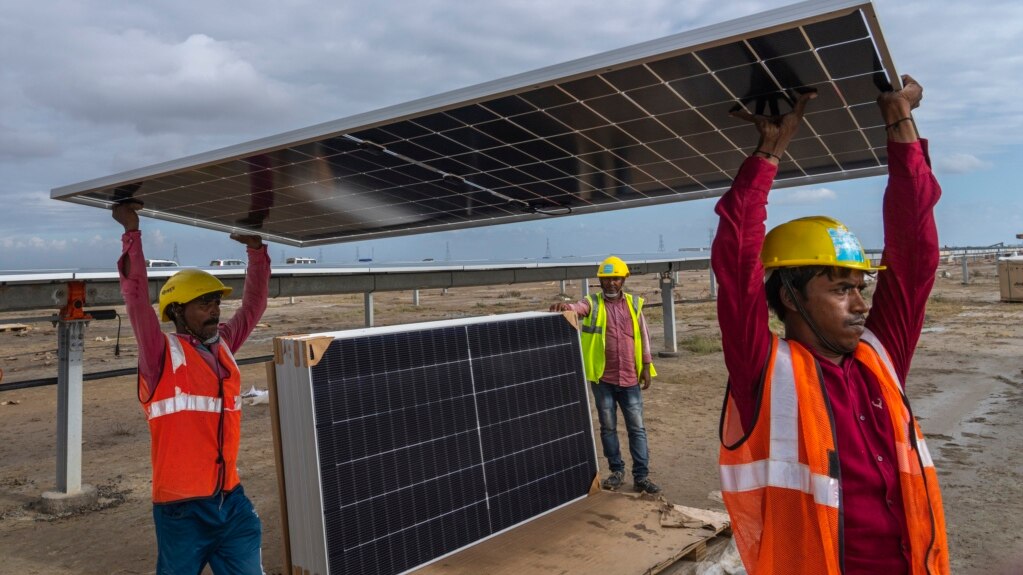India is planning to launch the world’s largest renewable energy project near the country’s border with Pakistan.
The term renewable describes energy produced from natural sources, such as sunlight or wind. These sources are considered renewable because they are continually produced in nature.
The Indian effort would be so huge it could be seen from space. Officials say it will use solar and wind equipment to produce electricity.
The project is named the Khavda Renewable Energy Park, after the closest village in the area.
Reporters from The Associated Press recently visited the project area. They reported that thousands of workers are taking part in building activities. Some workers placed pillars in the ground to hold panels to capture sunlight. The large pillars can be seen rising into the distance for as far as the eye can see.
Other workers prepared parts of the ground to support large wind collectors, called turbines. Others were seen transporting building materials or running wiring over many kilometers.
When completed, the project will be about the size of Singapore, spreading over 726 square kilometers. The Indian government estimates it will cost at least $2.26 billion.
Leaders meeting at the COP28 climate conference in Dubai have said an expansion of renewable energy will be important as the world seeks to meet future environmental targets. Some leaders have said any final climate agreement must call for a tripling of renewable energy worldwide.
In addition, environmental activists say major cuts must be made in the use of non-sustainable planet-warming energies, such as coal, oil and natural gas.
The Khavda project is being built in the middle of the Rann of Kutch, in India’s western Gujarat state. The Rann is an extreme environment containing a salt desert and wetlands.
When AP reporters visited, two days of unseasonal heavy rains had left the ground muddy and wet. The only escape for water in the area is through evaporation. The rainy conditions made the jobs harder for the workers, the AP reported.
An estimated 4,000 workers and 500 engineers have been living in camps over the past year to try to get the project up and running.
Once completed, it will supply 30 gigawatts of renewable energy each year. This would be enough to power nearly 18 million Indian homes.
India is mostly powered by carbon fuels, especially coal. Coal produces about 70 percent of the nation’s electricity. Renewable energy currently makes up just 10 percent of India’s electricity needs.
The country is currently the third-largest polluter of planet-warming gases, behind China and the United States.
KSRK Verma is the project leader for Adani Green Energy Limited. The Indian government has contracted with the company to build 20 gigawatts of the project. Verma has 35 years of experience in the industry. He called the Khavda project one of the most difficult he has ever led.
“It’s not at all (an) easy site to work at,” he said. He noted the area’s severe conditions, including high winds, heavy rains and earthquake activity.
I’m Bryan Lynn.

